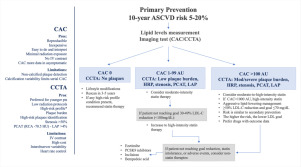
We have all heard the tale: Elevated cholesterol results in heart disease, and statins represent the ultimate solution. The JUPITER trial, released in The New England Journal of Medicine in 2008, became one of the most extensively promoted pieces of evidence supporting that notion. It asserted that rosuvastatin greatly diminished heart attacks, strokes, and cardiovascular incidents, even among individuals with regular LDL cholesterol levels.
But what if I told you that more individuals succumbed to heart attacks in the rosuvastatin group compared to those in the placebo group?
You won’t see this detail emphasized in the abstract or the conclusion. However, if you sift through Table 3 and perform some basic calculations, here’s what you find:
– In the rosuvastatin group, there were thirty-one total myocardial infarctions (MIs), with twenty-two being nonfatal.
– In the placebo group, there were sixty-eight total MIs, of which sixty-two were nonfatal.
After doing the subtraction, you end up with: nine fatal MIs in the statin group. Six fatal MIs in the placebo group.
This represents a fifty percent rise in fatal heart attacks among those taking a medication intended to prevent them.
Let that resonate.
This was not an anomaly hidden in the fine print. It was observable but overlooked. Instead, we were presented with gleaming relative risk reductions (“forty-four percent fewer heart attacks!”) and dramatic early termination of the trial to further amplify the reported effect size. But what truly matters (real, irreversible outcomes like death) illustrated an entirely different narrative.
It is straightforward to sway perception when you merge fatal and nonfatal outcomes into a single “composite endpoint.” It is even easier when you halt the trial prematurely, before long-term safety signals can be identified. And it becomes nearly impossible to uncover harm when the medical community accepts the headline without question and moves on.
Statins may reduce LDL. Yet, the belief that LDL is the primary cause of heart disease is an obsolete theory based more on correlation than causation. And if a cholesterol-lowering drug results in more fatal heart attacks (even as it decreases nonfatal ones), what are we truly celebrating?
This is not about being anti-statin. It is about being pro-truth.
As medical professionals, we owe it to our patients to pose challenging questions and insist on honest data. A fifty percent rise in fatal heart attacks in the treatment group should not be concealed in a table or deduced from subtraction. It should be front-page news. And it should cause us to reconsider before prescribing indiscriminately.
The JUPITER trial did not validate what we believe it did. However, it did unveil something else: how simple it is to construct a narrative when no one scrutinizes too closely.
*Larry Kaskel is an internist and “lipidologist in recovery” who has been practicing medicine for over thirty-five years. He runs a concierge practice in the Chicago area and is part of the teaching faculty at Northwestern University Feinberg School of Medicine. Additionally, he is associated with Northwestern Lake Forest Hospital.*
*Prior to podcasts becoming popular, Dr. Kaskel hosted Lipid Luminations on ReachMD, where he created a collection of over four hundred programs featuring prominent voices in cardiology, lipidology, and preventive medicine.*
*He is the author of Dr. Kaskel’s Living in Wellness, Volume One: Let Food Be Thy Medicine, works that merge evidence-based medical practice with approachable strategies for enhancing healthspan. His current projects focus on reassessing the cholesterol hypothesis and exploring the infectious origins of atherosclerosis.*